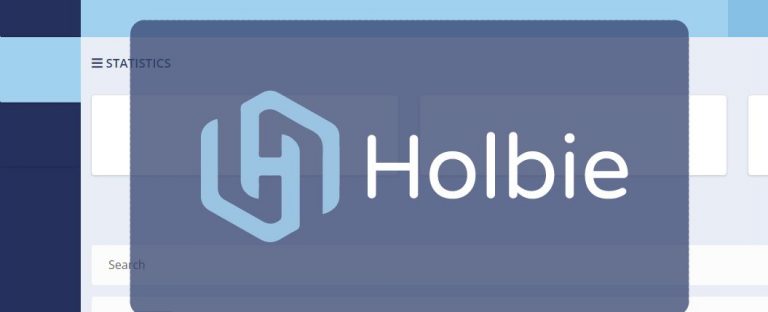Healthcare has dramatically evolved over the years, and so has the recognition and acceptance of alternative therapies like acupuncture, massage therapy, and chiropractic treatment. Today, an increasing number of insurance companies cover these services, leading to an intricate maze of health insurance claims processing. This blog post aims to help you better comprehend the insurance billing process for alternative therapies and how to optimize it for your practice.
Navigating the Health Insurance Landscape
Firstly, understanding the basics of health insurance is paramount. Every policy comes with its own set of terms, conditions, and coverage limits. Depending on the policy, specific alternative therapies may be fully, partially, or not covered at all. Moreover, insurance policies often contain intricacies like deductibles, co-payments, and out-of-pocket limits, impacting how much a patient pays for your services.
Coding: The Language of Health Insurance
In the realm of insurance billing, coding is a universal language. Procedures, diagnoses, and medical services are translated into specific codes, which insurance companies use to determine coverage and reimbursement. For instance, acupuncture services might use CPT (Current Procedural Terminology) codes, while diagnoses are coded using ICD-10 codes. Understanding these codes and using them correctly is essential for successful claims processing.
Submitting a Claim
Once a service has been rendered and coded, it’s time to submit a claim to the insurance company. This usually involves filling out a standardized form electronically or on paper and sending it to the insurer. The claim provides detailed information about the patient, the provider, the services rendered, and the associated charges.
Managing Rejections and Denials
Despite best efforts, not every claim is accepted on the first try. Insurance companies might reject a claim if there’s an error or omission in the form or deny a claim if they deem the service unnecessary or outside the patient’s coverage. Understanding the reasons behind rejections and denials can help refine your billing process and increase your success rate.
Embracing Automation with Practice Management Software
Today, many practices simplify insurance billing with practice management software and insurance billing services. Such solutions can streamline claims processing, reduce administrative workload, and help avoid common errors that lead to rejections and denials.
The Holbie Advantage
Holistic Billing Services offers Holbie a comprehensive practice management solution tailored explicitly for providers of alternative therapies. Our software simplifies the billing process, helping you easily navigate the complex landscape of health insurance. Moreover, we keep up-to-date with the latest coding changes and insurance trends, ensuring that your practice stays compliant and optimized for maximum reimbursement.
Final Thoughts
Understanding health insurance claims processing can seem daunting, but it becomes manageable with the proper knowledge and tools. By mastering insurance fundamentals, staying current with coding changes, and leveraging technology, you can optimize your billing process, improve cash flow, and focus more on patient care. If you need support navigating the insurance maze, consider partnering with a specialist like Holbie. We’re here to make insurance billing easier and more efficient for your practice.
Contact us today for more information on how Holbie can assist with your insurance billing needs.
In the holistic healthcare sector, communication and documentation are two critical aspects that directly influence the effectiveness of patient care and billing processes. Among various documentation techniques, SOAP notes have emerged as an indispensable tool for acupuncture practitioners, massage therapists, chiropractors, and other providers of alternative therapies. In this post, we explore how you can optimize SOAP notes for your practice, specifically focusing on their role in acupuncture billing and the use of acupuncture billing services.
What are SOAP Notes?
SOAP, an acronym for Subjective, Objective, Assessment, and Plan, is a standardized method for documenting healthcare encounters. SOAP notes ensure that every critical aspect of a patient’s condition and treatment is accurately recorded, fostering clear communication and continuity of care.
Subjective: Patient’s Perspective
The ‘Subjective’ section captures the patient’s viewpoint – their symptoms, concerns, and overall health status. For an acupuncturist, this could involve documenting the patient’s pain level, duration of discomfort, and any changes since their last visit.
Objective: Provider’s Observations
‘Objective’ details are factual, quantifiable data you observe or measure during the patient’s visit. This could include pulse rate, range of motion, palpation findings, or changes in the appearance of the tongue in the context of acupuncture.
Assessment: Professional Evaluation
The ‘Assessment’ segment involves your professional interpretation of the subjective and objective data. Here, you may note your diagnosis, progress, or patient condition changes.
Plan: Roadmap for Treatment
Finally, the ‘Plan’ section outlines the treatment approach, including selected acupuncture points, massage techniques, or other therapeutic interventions. It should also document any recommendations for follow-up appointments or home care.
The Significance of SOAP Notes in Acupuncture Billing
Accurate, comprehensive SOAP notes play a pivotal role in acupuncture billing. They provide a clear record of the services rendered, which is crucial when submitting claims to insurance companies. Detailed SOAP notes justify the need for the services billed, which can help prevent claim denials and ensure accurate reimbursement.
Leveraging Acupuncture Billing Services
Acupuncture billing services like Holistic Billing Serrvices can further optimize the billing process. They offer specialized knowledge of coding and insurance requirements for acupuncture and other holistic therapies. Coupled with clear, comprehensive SOAP notes, these services can enhance your revenue cycle management and free up more of your time to focus on patient care.
Final Thoughts: Quality Over Quantity
When it comes to SOAP notes, quality outweighs quantity. Providing enough detail to justify your treatment without unnecessary or irrelevant information is essential. Focusing on clarity, relevance, and thoroughness can help you create SOAP notes that enhance patient care and acupuncture billing processes.
By optimizing your SOAP notes and leveraging the expertise of acupuncture billing services, you can ensure a smoother, more efficient billing process. This contributes to your practice’s financial health and allows you to dedicate more time and energy to what matters most—your patients.
Contact us today for more information on how Holbie can assist with your acupuncture billing needs.
As we navigate the digital revolution, holistic practitioners increasingly recognize the value of integrating technology into their practice. For acupuncturists, chiropractors, and massage therapists, this includes adopting online payments and practice management systems to manage their practice more effectively. In this blog, we’ll explore the benefits of these integrations and how they can enhance the wellness practice.
Online Payments: Convenience at Your Fingertips
Embracing online payment systems offers numerous advantages to both practitioners and patients. Firstly, it allows for increased convenience. Online transactions eliminate the need for cash on hand and streamline the payment process, creating a more enjoyable experience for your clients.
Moreover, online payments can enhance business efficiency by speeding up transaction times and reducing administrative tasks. It ensures instantaneous payment processing, minimizing any delay in revenue realization. Lastly, online payment systems are increasingly secure, protecting sensitive client information. These systems use encryption to safeguard data, giving you and your patients peace of mind.
Practice Management: A Path to Business Clarity
Accurate practice management software is crucial for the sustainable growth of any wellness practice. Integrating practice management software into your operations gives you real-time insights into your practice’s financial health. This not only aids in better decision-making but also helps you spot potential issues before they become significant problems.
Integrated practice management allows for easy monitoring of revenue streams, including patient payments, insurance reimbursements, and product sales. It can also aid in expense tracking, helping you manage overheads effectively.
Moreover, practice management systems simplify tax preparations by maintaining organized records of your income and expenses. It eliminates the time-consuming process of sorting through piles of paperwork during tax season.
Integrating Online Payments and practice management with Holbie
At Holistic Billing Services, we understand the specific needs of holistic healthcare providers. Our innovative practice management software Holbie is designed to integrate seamlessly with your practice with our online payment systems, SOAP notes, and practice management tools, creating a comprehensive solution for your practice management needs.
Our software allows you to accept online payments effortlessly, providing your clients a smooth, convenient experience. Simultaneously, our robust practice management features ensure you always have a clear picture of your practice’s financial health.
In Conclusion
As the healthcare landscape continues to evolve, it’s more important than ever for wellness practitioners to adapt and innovate. Integrating online payments and practice management into your practice can enhance convenience, improve efficiency, and provide valuable insights into your business operations. With Holbie’s all-encompassing practice management software, you can simplify your processes and focus on what truly matters – transforming lives through holistic healthcare.
Are you interested in seeing how Holbie can benefit your practice? Get in touch with us today to learn more.
In today’s fast-paced digital world, technology plays a pivotal role in virtually every aspect of business – and wellness practices are no exception. Integrating online payments and financial tracking into your practice is an effective way to streamline operations, improve client satisfaction, and enhance overall business health. In this blog, we explore how these digital solutions can drive your practice’s success.
The Power of Online Payments
The first step towards financial digitalization is the implementation of online payments. This solution provides multiple benefits:
1. Convenience for Clients
A study by ACI Worldwide found that 79% of respondents prefer digital payment options over traditional methods. Online payments offer a higher level of convenience, allowing clients and patients to pay anytime, anywhere. They can settle their bills at home or on-the-go, which saves them time and enhances their overall experience with your practice.
2. Improved Cash Flow
Online payments are processed more quickly than checks or cash, which means funds reach your account faster. This improvement can significantly enhance your cash flow, allowing you to reinvest in your business more rapidly.
3. Reduced Administrative Load
Manual processing of payments can be time-consuming. Online payments are automatic, reducing the time your staff spends on processing payments and freeing them up for other crucial tasks.
Harnessing Financial Tracking
The next element of financial digitalization is integrating financial tracking. This process gives you insight into your practice’s financial health and provides a solid foundation for decision-making.
1. Informed Decision-Making
Financial tracking provides valuable insights into your practice’s revenue, expenses, and overall profitability. With this information at your fingertips, you can make informed decisions about investments, pricing, cost-cutting measures, and business growth strategies.
2. Streamlined Tax Preparation
Good financial tracking simplifies tax preparation. By keeping a close eye on your finances, you can ensure that all necessary information is readily available come tax season, reducing stress and potential errors.
3. Fraud Detection and Prevention
Financial tracking systems can often help detect discrepancies or irregularities in your financial data, which can be an early indicator of fraud. Early detection enables swift action to prevent further damage.
The Role of Practice Management Software
While the benefits of integrating online payments and financial tracking are evident, doing so manually can be complex. This is where practice management software, like Holbie, comes into play.
Holbie’s software integrates both online payment processing and financial tracking into an easy-to-use platform tailored for wellness practitioners. With Holbie, you can:
- Accept a wide variety of online payments, enhancing convenience for your clients.
- Track payments, refunds, and outstanding balances with ease.
- Gain insights into your financial health through comprehensive financial reports.
- Streamline tax preparation.
- Protect your practice through secure, HIPAA-compliant processing and storage of financial data.
The integration of online payments and financial tracking into your wellness practice is not just about staying current with technology trends. It’s about enhancing your service offering, improving your practice’s financial health, and ultimately, freeing up your time to focus on what you do best: improving the wellness of your clients.
Ready to integrate online payments and financial tracking into your practice? Contact Holbie today to learn how our software can simplify your practice management and amplify your impact.
In the rapidly evolving healthcare landscape, chiropractors often juggle clinical responsibilities with back-office tasks such as insurance billing. While these administrative duties are integral to running a practice, they can often detract from the core objective of providing patient-centered care. One practical solution to this conundrum is outsourcing insurance billing. In this blog post, we’ll delve into the various benefits that outsourced insurance billing can bring to your chiropractic practice.
1. More Time for Patient Care
Outsourcing insurance billing allows you to refocus your attention where it matters most – on your patients. According to a study published in the Annals of Internal Medicine, physicians spend nearly twice as much time on administrative work as on direct patient care. By outsourcing, you can devote more time to patient consultations, treatment, and follow-ups, thereby improving patient satisfaction and care outcomes.
2. Cost-Effective
Employing a dedicated in-house billing team can be expensive when you consider salaries, benefits, training, and turnover. On the other hand, outsourcing to a professional billing service like Holbie eliminates these overhead costs. You pay for the service, not office space, software, hardware, or additional employees. This cost-effectiveness can significantly improve your bottom line.
3. Expertise and Accuracy
Billing companies specialize in healthcare coding and billing. They stay abreast of the latest changes in billing codes, insurance policy updates, and industry trends. This expertise ensures accurate claim submissions, which can improve your reimbursement rates and reduce claim denials. Moreover, billing companies understand the intricacies of different insurance providers, navigating their policies more efficiently than a general office staff member.
4. Cash Flow Consistency
Outsourced billing services can streamline your revenue cycle management. They can quickly submit claims, follow up on unpaid claims, and manage patient invoices and collections. This efficiency ensures a steady, predictable cash flow, providing financial stability to your practice.
5. Stress Reduction
Dealing with insurance companies, following up on unpaid claims, and resolving billing issues can be stressful and time-consuming task. Outsourcing your insurance billing alleviates this stress and frees your team to focus on more immediate and patient-centric tasks.
6. Patient Satisfaction
Outsourced billing services often have the resources to provide patient support for billing questions and issues. This ability to quickly and effectively handle patient inquiries enhances patient satisfaction and can contribute to a better patient experience.
7. Compliance
Billing services are well-versed in the latest healthcare regulations and compliance requirements, including the Health Insurance Portability and Accountability Act (HIPAA). They can help ensure that your practice remains compliant, avoiding potentially costly fines and penalties.
8. Scalability
As your practice grows, so too does the complexity and volume of your billing. Outsourcing your billing allows for scalability without the need for hiring additional staff or worrying about staff turnover during critical periods.
Holbie’s outsourced insurance billing service is a perfect solution for chiropractors looking to reap these benefits. As a leading provider in the industry, Holbie combines advanced technology with expertise in insurance billing to provide seamless billing services to chiropractors. This way, you can focus on patient care while we handle your billing needs.
Outsourcing your insurance billing can be a transformative decision for your practice. It’s about choosing a strategic partner who works towards the success of your practice as much as you do. In essence, outsourcing is more than a service; it’s a pathway to simplified practice management and amplified impact on patient.
As a massage therapist, you are often juggling several roles. From managing appointments, maintaining client records, and handling billing to focusing on providing exceptional care to your clients – it can all become overwhelming. The good news? It doesn’t have to be. Thanks to technology advancements, specifically in the area of practice management software, practitioners now have powerful tools to streamline their operations. At the forefront of these advancements is Holbie Practice Management Software from Holistic Billing Services, specifically designed for practitioners like you.
What is Holbie Practice Management Software?
Holbie Practice Management Software is an all-in-one tool created to manage and simplify various administrative tasks within your massage therapy practice. From online scheduling to electronic health records (EHR), insurance billing, and much more – Holbie is designed to optimize your practice’s efficiency, leaving you with more time to focus on your client’s care.
Scheduling Simplified
One of the critical features of Holbie’s software is online scheduling. According to a study by Accenture, 68% of patients said they are more likely to choose medical providers who offer digital scheduling. This feature allows your clients to book, reschedule or cancel their appointments online at their convenience. It also sends out automated reminders to your clients, significantly reducing no-show rates.
Easy-to-Use Electronic Health Records
Maintaining up-to-date, comprehensive health records is an integral part of a massage therapist’s role. Holbie includes an EHR system that is tailored to the needs of a massage therapy practice. It allows you to quickly input SOAP notes, upload relevant files, and maintain an organized record of your client’s health history, treatment plans, and progress – all in a secure, HIPAA-compliant manner.
Streamlined Insurance Billing
Navigating the complexities of insurance billing can be a significant challenge for many massage therapists. Holbie software includes an insurance billing feature that simplifies this process. Whether you’re managing superbill generation, claim submissions, or tracking your reimbursements, Holbie’s insurance billing feature has you covered.
A Bird’s Eye View of Your Practice
Holbie also provides practice management tools, giving you an overview of your practice’s performance. By offering insights into your busiest days, average client visits, revenue trends, and much more, it helps you make data-driven decisions to grow your practice.
Why Choose Holbie?
So why choose Holbie? Holbie is designed to be user-friendly, ensuring that you and your staff can navigate the system with ease. The software is also accessible anytime, anywhere, giving you the flexibility to manage your practice outside of the office or on the go.
On top of that, Holbie is dedicated to continually developing innovative solutions to meet your ever-evolving needs. When you opt for Holbie Practice Management, you choose a partner committed to your practice’s success.
Running a successful massage therapy practice goes beyond providing excellent patient care. It also involves effectively managing the various administrative tasks that keep your practice running smoothly. With Holbie, you can streamline your operations, enhance your service delivery, and focus more on what you do best – providing exceptional massage therapy to your clients.
So, are you ready to simplify your practice and amplify your impact? Contact Holbie today to discover how our Practice Management Software can revolutionize your massage therapy practice. You can also book a demo to experience firsthand how Holbie can benefit your practice.
Remember, Holbie is not just software – it’s a partner dedicated to your success. Reach out today and take the first step toward simplifying your practice.
In an era where technology is advancing at an unprecedented pace, maintaining a tech-savvy acupuncture practice can be a game-changer. Electronic Health Record (EHR) systems have become an essential component of effective practice management. In fact, a study conducted by the National Center for Health Statistics (NCHS) found that as of 2017, nearly 9 out of 10 (86%) of office-based physicians have adopted an EHR system. But how do you choose the right one for your acupuncture practice? Here are some tips to guide your decision-making process.
1. Understand Your Specific Needs
Every practice is unique, with varying requirements for software functionality. A study published in Perspectives in Health Information Management suggests that the practice’s needs should guide the selection of an EHR system. Understanding your clinic’s workflow, size, patient volume, and the specific features that will benefit your practice can help narrow down your choices.
2. Evaluate Usability and User Interface
According to a survey by the American Medical Association (AMA), 54% of providers expressed dissatisfaction with their EHR systems due to poor usability. Hence, the software’s user interface should be intuitive and easy to navigate, reducing the learning curve and enabling you and your staff to operate it effectively.
3. Ensure Data Security and Compliance
Patient data security is critical. A study by the Ponemon Institute found that healthcare data breaches cost $6.45 million on average. Thus, the EHR system you choose should comply with all necessary regulations, such as HIPAA, and provide robust data security measures.
4. Check Interoperability
The ability to share patient information with other healthcare providers is a significant advantage of EHR systems. According to the Office of the National Coordinator for Health Information Technology, 93% of hospitals had EHR technology to view, exchange, and receive health data with other health providers in 2015.
5. Consider Pricing and ROI
EHR systems can be an investment. However, when chosen wisely, they can provide substantial ROI through increased efficiency, improved patient satisfaction, and reduced administrative costs.
6. Test Customer Support and Training
Effective customer support and training are crucial for a smooth transition to a new EHR system. Therefore, opt for vendors who offer comprehensive onboarding and continuous support.
In conclusion, choosing the right EHR system for your acupuncture practice involves careful consideration of your unique needs, usability, data security, interoperability, pricing, and support. By taking the time to assess your options thoroughly, you can find a system that not only simplifies your practice management but also amplifies your impact on your patient’s health and well-being.
Are you still wondering how to make the right choice? Holbie offers an EHR system specifically designed for acupuncturists, chiropractors, and massage therapists, ensuring all your unique needs are covered. Feel free to get in touch with us to learn more.
As a holistic practitioner, providing exceptional patient care is likely your top priority. However, managing the administrative side of your practice is just as crucial to your success. One key aspect of practice management is efficient patient scheduling and appointment reminders. In this blog post, we’ll discuss the importance of these elements in your holistic practice, focusing on the often-overlooked cost of missed appointments and how to minimize these occurrences to deliver the best possible care to your patients.
The Financial Impact of No-Shows and Late Arrivals
Missed appointments are a significant issue for healthcare providers, costing the industry billions of dollars annually. According to a study published in BMC Health Services Research, the average cost of a missed appointment in the United States is approximately $97-$200. This can quickly add up for a small holistic practice, negatively impacting revenue and profitability. Implementing an efficient patient scheduling system and sending appointment reminders can significantly reduce no-shows and late arrivals, helping to protect your practice’s bottom line.
Enhancing Patient Satisfaction and Retention
Proper patient scheduling and appointment reminders can lead to a more organized and smoothly running practice, improving patient satisfaction. Patients who experience a seamless check-in process, reduced waiting times, and timely reminders are more likely to perceive your practice as professional, reliable, and caring. This enhanced satisfaction can lead to increased patient retention, with one study showing that a 3% increase in patient retention can result in a 25% increase in profit.
Streamlining Practice Management and Resource Allocation
Efficient patient scheduling helps you manage your practice more effectively by allowing you to allocate resources, including staff and treatment rooms, more strategically. With a well-organized schedule, you can better anticipate busy periods, avoid overbooking, and ensure you have enough time to provide quality care to each patient.
Reducing Administrative Burden and Costs
Automated appointment reminders can save your staff time and effort that would otherwise be spent manually contacting patients to confirm appointments. Reducing administrative workload can free up your team to focus on other important tasks, such as patient care, billing, and practice growth, ultimately contributing to cost savings for your practice.
Maximizing Revenue and Patient Referrals
By implementing a reliable patient scheduling system and sending appointment reminders, you can minimize lost revenue due to missed appointments. Additionally, a well-managed scheduling process can increase patient referrals, as satisfied patients are more likely to recommend your services to their friends and family.
Incorporating efficient patient scheduling and appointment reminders into your holistic practice’s daily operations can bring numerous benefits, including improved patient satisfaction, streamlined practice management, and increased revenue. Investing in the right tools and strategies for your scheduling process can minimize the costly impact of missed appointments and ensure that your practice runs smoothly, allowing you to focus on providing the best care possible to your patients.
At Holistic Billing, we understand the importance of efficient practice management for holistic practitioners. Holbie, our online platform, offers easy-to-use scheduling and appointment reminder features tailored to acupuncturists, chiropractors, and massage therapists’ unique needs. To learn more about how Holbie can help you optimize your practice and reduce missed appointment costs, contact us today.
For many integrative healthcare practitioners, navigating the complexities of insurance billing can be a significant challenge. However, understanding how to master insurance billing is crucial to your practice’s financial success and growth. This blog post will discuss essential tips and strategies to help acupuncturists, licensed massage therapists, and chiropractors overcome common insurance billing obstacles and streamline their revenue cycle management.
Understand the Basics of Insurance Billing
The first step in mastering insurance billing is familiarizing with the basic concepts and terminology. Key terms to understand include:
- CPT Codes: Current Procedural Terminology codes describe medical procedures and services healthcare providers perform.
- ICD-10 Codes: International Classification of Diseases codes are used to classify and code diagnoses.
- Provider Network: The group of healthcare providers contracted or participating with an insurance company to provide services to their members.
- Reimbursement: The payment received by a healthcare provider from an insurance company for services rendered.
- Explanation of Benefits (EOB): A document sent by the insurance company to the patient and provider detailing the services provided, the amount billed, and the amount paid by the insurance company.
Verify Patient Insurance Eligibility
Before providing services, verifying each patient’s insurance eligibility and benefits is essential. This includes checking for coverage details such as deductibles, copayments, and any limitations or exclusions. Verifying eligibility upfront helps prevent denied claims and ensures that you have accurate information about the patient’s insurance benefits.
Keep Accurate and Detailed Documentation
Proper documentation is crucial to the insurance billing process. Ensure that your patient records are thorough, accurate, and up-to-date, including the patient’s demographic information, insurance details, and relevant medical history. Document the services provided using the appropriate CPT and ICD-10 codes for each visit. Accurate documentation helps prevent claim denials and protects your practice during audits or disputes.
Stay Up-to-Date with Billing Regulations and Payer Requirements
Insurance billing regulations and payer requirements are constantly evolving. To ensure that your practice remains compliant, stay informed about changes in billing rules, coding updates, and any changes to payer-specific guidelines. Resources such as industry newsletters, webinars, and professional associations can help you stay informed and up-to-date.
Invest in Practice Management Software and Billing Services
Investing in practice management software, like Holbie, can help streamline your revenue cycle management and master insurance billing by automating tasks such as patient registration, appointment scheduling, and claims submission. Holbie also offers a comprehensive insurance billing service, which can save you time and resources by handling the entire billing process on your behalf, from claim submission to payment follow-up.
Monitor and Track Your Billing Performance
Regularly monitoring and tracking your billing performance is crucial to identifying areas for improvement and ensuring the financial health of your practice. Review key performance indicators (KPIs) such as claim denial rates, days in accounts receivable, and the percentage of revenue collected. By analyzing your billing data and identifying trends, you can make informed decisions about your practice’s billing processes and revenue cycle management.
Mastering insurance billing is essential for the success of your integrative healthcare practice. By understanding the basics, verifying patient eligibility, maintaining accurate documentation, staying informed about regulations, investing in practice management software or billing services, and monitoring your billing performance, you can streamline your revenue cycle management and focus on providing exceptional patient care.
How does this apply to a billing business that specializes in medical-massage, acupuncture, and chiropractic billing? You do not need to spend all your time on the time-consuming and challenging medical coding and billing procedure while you are occupied filling your schedule. Your time, energy, and creativity are freed up to concentrate on what matters most: your patients by having a reputable company like Holistic Billing Services handle your online appointments, SOAP notes, or your medical billing burden. The welcoming professionals at HBS have years of experience and are glad to support you in EHR and medical billing success! Get in touch with us to create a unique solution that meets the demands and objectives of your practice.
As integrative healthcare practitioners, you know the importance of providing personalized, holistic care to patients. You understand that physical, emotional, and environmental factors influence your patient’s health. You need a system that enables you to efficiently document, manage, and track your patient’s health information. Enter electronic health records (EHRs).
What Are Electronic Health Records (EHRs)?
Electronic health records (EHRs) are digital versions of traditional paper-based patient charts. They store a patient’s medical history, treatment plans, diagnostic information, and more. By replacing paper records with digital ones, EHRs can significantly improve healthcare practices’ efficiency and enhance patient care quality.
Benefits of Electronic Health Records for Integrative Healthcare Practitioners
For practitioners in the fields of acupuncture, massage therapy, and chiropractic care, adopting an EHR system can bring a wide range of benefits:
- Improved Documentation: EHRs provide a consistent, structured format for documenting patient information, making it easier to keep track of treatment plans, progress notes, and other essential data. This can help to reduce errors in patient records.
- Streamlined Communication: EHRs facilitate seamless communication between practitioners and other healthcare providers. By securely sharing patient information, practitioners can coordinate care more effectively, ensuring patients receive the most appropriate treatments and interventions.
- Enhanced Decision-Making: EHRs can provide practitioners with a comprehensive view of a patient’s health history, allowing them to make more informed decisions about their care. This can be particularly valuable for integrative healthcare practitioners who often need to consider various factors when developing treatment plans.
- Increased Efficiency: EHRs can significantly reduce the time spent on administrative tasks, such as updating patient records, scheduling appointments, and processing insurance claims. This allows practitioners to focus more on patient care and less on paperwork.
- Data Security and Compliance: EHRs can help practitioners protect patient information through encryption and secure access controls, ensuring that sensitive data remains confidential. In addition, EHR systems can help practitioners stay compliant with industry regulations, such as HIPAA, by providing tools to manage patient consent and track data access.
Choosing the Right EHR System for Your Practice
When selecting an EHR system, it’s essential to choose one tailored to your specific practice’s needs. For integrative healthcare practitioners, this means finding an EHR system that supports your unique treatment modalities and offers features that enhance your workflow.
Here are some factors to consider when choosing EHR systems:
- Interoperability: Choose an EHR system that can integrate with other healthcare systems and software, such as practice management tools and billing services. This will enable you to streamline your practice’s operations and improve communication with other providers.
- Ease of Use: It’s crucial to select an EHR system that’s user-friendly and easy to learn. This can minimize the learning curve for you and your staff, ensuring a smooth transition to the new system.
- Scalability: As your practice grows and evolves, your EHR system should be able to grow with you. Look for a system that can accommodate additional users, locations, and services as needed.
By adopting an EHR system tailored to integrative healthcare practices, you can experience many benefits that help you provide the highest quality care to your patients. Let’s explore some additional aspects of EHR systems that can support your practice.
Analytics and Reporting
By aggregating and analyzing patient data, EHR systems can provide valuable insights into your practice’s performance. With reporting capabilities, you can track important metrics, such as patient demographics, appointment trends, and revenue sources. These insights can help you make informed decisions about marketing, staffing, and service offerings to ensure your practice’s continued growth and success.
In addition, EHR systems can help you monitor clinical outcomes and identify patterns in patient care. This information can be used to refine your treatment approaches, implement quality improvement initiatives, and demonstrate the effectiveness of your services to patients, insurance companies, and other stakeholders.
Training and Support
When implementing a new EHR system, it’s essential to have access to comprehensive training resources and ongoing support. EHR vendors should provide thorough training materials, such as tutorials, webinars, and user guides, to help you and your staff get up to speed quickly. In addition, they should offer responsive customer support to address any questions or issues that may arise during the implementation process and beyond.
Cost and Return on Investment
Finally, it’s essential to consider the cost of implementing an EHR system and the potential return on investment (ROI) for your practice. While upfront fees may be associated with purchasing and setting up the system, look for systems with minimal up-front costs, however, the long-term benefits can far outweigh these expenses. Improved efficiency, reduced errors, and enhanced patient care can lead to increased patient satisfaction and retention and potential revenue growth.
When evaluating EHR systems, consider factors such as subscription fees, hardware requirements, and additional training or support costs. It’s also helpful to compare the prices and features of various EHR systems to find the best fit for your practice’s needs and budget. Adopting an EHR system tailored to the needs of your integrative healthcare practice can significantly enhance your ability to provide personalized, high-quality care to your patients. By carefully considering the features, functionality, and support offered by different EHR systems, you can choose the right solution to help your practice thrive now and in the future.
How does this apply to a billing business that specializes in medical-massage, acupuncture, and chiropractic billing? The time-consuming and challenging procedure of medical coding and billing does not need to take up your time when you are occupied filling your schedule. Your time, energy, and creativity are freed up to concentrate on what matters most: your patients, by delegating your online appointments, SOAP notes, or medical billing load to a reputable company like Holistic Billing Services. The helpful professionals at HBS are glad to support you in EHR and medical billing success and have decades of experience. To begin creating a unique solution that meets the needs and objectives of your acupuncture clinic, get in touch with us right now.










